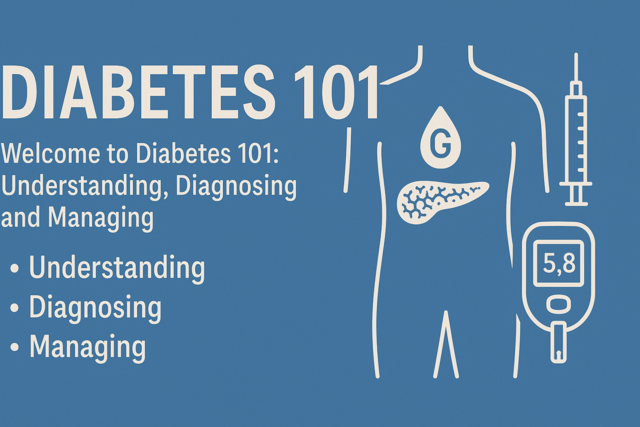Online Class: Asthma 101

no certificate
with CEU Certificate*
-
11Lessons
-
27Exams &
Assignments -
994Students
have taken this course -
4Hours
average time -
0.4CEUs
Course Description
Welcome to Asthma 101, an introduction into the medical condition known as asthma. Do you know the difference between asthma and allergies? We'll explain that in this course. Students will also learn about the usual suspects when it comes to asthma symptoms and the different types of asthma that an individual can be diagnosed with, depending on occupation, lifestyle and hypersensitivity to foods, drugs, and the environment.
In this course, students will also learn how to identify risk factors for contracting asthma as well as a understand the background into genetic information that may be associated with the condition. Managing asthma is also a focus of this course, and students will learn how to provide and contribute to long-term therapy and approaches to asthma treatment following a diagnosis.
In this course, we'll cover a number of commonly prescribed medications and alternative treatments for relief of asthma symptoms. Both prescription and over-the-counter medications used to treat asthma are also covered in this course, as is the use of a variety of diagnostic methodologies to develop a well-rounded and effective short-acting and long-term treatment plan for management of asthma symptoms.
You'll learn about some of the more common complications that those diagnosed with asthma need to watch out for as well as steps that you can take to create a cleaner, safer and healthier home environment.
Students will also learn how asthma affects children, pregnant women and the elderly in different ways and steps that each group can take in their fight against asthmas by discussing medications, lifestyle changes, and knowledge that helps reduce the frequency and severity of asthma attacks in a variety of environments.
- Completely Online
- Self-Paced
- Printable Lessons
- Full HD Video

- 6 Months to Complete
- 24/7 Availability
- Start Anytime
- PC & Mac Compatible
- Android & iOS Friendly
- Accredited CEUs

Course Lessons
Lesson 1. The Science and Stories of Asthma Management
Asthma affects millions and manifests in unique stages; managing it requires knowledge of triggers, treatments, and lifestyle adaptations. The lesson encourages learners to integrate medical and alternative therapies, fostering a proactive approach towards enhancing life quality with asthma.Lesson 2. Mastering Asthma: From Symptoms to Solutions
Asthma presents a diverse set of symptoms influenced by environmental and individual factors, requiring personalized management and understanding. Through recognizing one's unique triggers and symptoms, individuals can navigate asthma more effectively and enhance their quality of life.Lesson 3. Asthma Unveiled: A Deep Dive into Its Diverse Forms and Management
Exercise-induced asthma, characterized by breathlessness during physical activity, doesn't necessitate avoidance of exercise. With strategic warm-ups and precautions, individuals can manage symptoms and often excel in sports without compromising health.Lesson 4. Environmental Challenges in Asthma
Certain food and drug allergies can escalate asthma symptoms, requiring careful dietary choices and medication management. Recognizing these hidden threats empowers individuals to avoid severe reactions.Lesson 5. Asthma Unveiled: The Intersection of Genes, Environment, and Health
Risk factors like allergies and exposure to environmental irritants like smoke and pollutants play significant roles in asthma's development, with maternal smoking and obesity further complicating the condition through genetic and inflammatory pathways, respectively. The interplay of these factors illustrates the delicate balance between genetic predisposition and environmental influences on asthma onset.Lesson 6. Asthma Diagnosis: Steps and Solutions
Asthma management requires a spectrum of clinical interventions, from corticosteroids to biologic treatments, coupled with lifestyle and environmental adjustments to reduce the burden of symptoms. Equitable global initiatives are crucial for overcoming healthcare disparities, offering hope for consistent care in diverse settings.Lesson 7. Asthma Care Strategies
Long-term asthma management is about more than just medication; it's a holistic approach that includes lifestyle adjustments and environmental awareness. By understanding triggers and monitoring symptoms, individuals can create a dynamic treatment plan to live more freely.Lesson 8. Rethinking Asthma Treatment
Exploring alternative methodologies, from controlled breathing techniques to dietary modifications, reveals a nuanced approach to asthma management beyond conventional medicine. Integrative strategies enable patients to personalize their treatment plans, fostering improved respiratory health and quality of life.Lesson 9. Navigating Asthma's Challenges
Understanding asthma triggers—from allergens to weather conditions—enables personalized strategies for symptom control and long-term well-being. This holistic approach helps mitigate asthma's ripple effects on daily life and social engagement.Lesson 10. Breath Easy: Mastering Home Environment for Asthma Care
Creating a safer home environment is key for managing asthma, as it involves identifying and minimizing environmental triggers like dust mites and strong odors. Personal health strategies, including tailored exercise and dietary caution, along with enhancing air quality through proper ventilation and green cleaning, complement this approach.Lesson 11. Breathing Easy: A Guide to Asthma Management at Every Age
For adolescents, balancing asthma management with their social needs is crucial, demanding open dialogue and supportive environments to address both medical and emotional aspects. Encouraging responsibility and peer understanding can help adolescents manage their condition effectively without feeling alienated or embarrassed.
Learning Outcomes
- Define and distinguish between the symptoms of asthma and allergies based on physiological responses.
- Identify and describe effective long-term asthma management strategies, including medication and lifestyle adjustments, to reduce the frequency of asthma attacks.
- Identify common environmental triggers and outline preventative strategies to minimize exposure and manage asthma symptoms effectively.
- Define the four major categories of asthma severity and describe appropriate management strategies for each level based on NIH guidelines.
- Demonstrate the ability to recognize and suggest strategies to manage asthma triggers, thereby minimizing the impact on respiratory health and enhancing quality of life.
- Identify and describe the four main types of asthma, including occupational, non-allergic, allergic, and exercise-induced, based on their triggers and characteristics.
- Identify and describe common environmental, dietary, and emotional factors that can act as asthma triggers, and recommend strategies for avoiding or mitigating these triggers.
- Define hypersensitivity and categorize it into four main types, providing examples of how each type can trigger asthma symptoms.
- Analyze the impact of environmental factors on asthma prevalence by examining lifestyle differences between rural and urban settings and their relationship with asthma rates.
- Define the influence of genetic predisposition on asthma development by identifying specific genetic markers linked to immune regulation and asthma susceptibility.
- Define the diagnostic criteria and processes for asthma, including the utilization of pulmonary function tests, and explain how they contribute to accurate diagnosis.
- Identify different types of asthma medications, differentiate between their purposes (long-term control and quick relief), and describe their roles in asthma management plans.
- Identify personal asthma triggers and describe their impact on symptom severity within various environments by maintaining a daily symptom log over four weeks.
- Demonstrate mastery of lesson content at levels of 70% or higher.
Additional Course Information

- Document Your Lifelong Learning Achievements
- Earn an Official Certificate Documenting Course Hours and CEUs
- Verify Your Certificate with a Unique Serial Number Online
- View and Share Your Certificate Online or Download/Print as PDF
- Display Your Certificate on Your Resume and Promote Your Achievements Using Social Media

Choose Your Subscription Plan
No Certificate / No CEUs
This course only
| Includes certificate | X |
| Includes CEUs | X |
| Self-paced |

|
| Instructor support |

|
| Time to complete | 6 months |
| No. of courses | 1 course |
Certificate & CEUs
This course only
| Includes certificate |

|
| Includes CEUs |

|
| Self-paced |

|
| Instructor support |

|
| Time to complete | 6 months |
| No. of courses | 1 course |
Certificates & CEUs
Includes all 600+ courses
| Includes certificate |

|
| Includes CEUs |

|
| Self-paced |

|
| Instructor support |

|
| Time to complete | 12 Months |
| No. of courses | 600+ |
Certificates & CEUs
Includes all 600+ courses
| Includes certificate |

|
| Includes CEUs |

|
| Self-paced |

|
| Instructor support |

|
| Time to complete | 24 Months |
| No. of courses | 600+ |
Student Testimonials
- "This course was very informative. I liked learning about my condition and how to work with it instead of against it. I also learned a lot of new things about medical resources and tools used to help asthma sufferers." -- Kristine P.
- "The instructor knew her stuff." -- Houston C.
Related Courses
-
 74 hours
7.4 CEUs
Medical Billing and Coding Course Bundle
+ More Info
74 hours
7.4 CEUs
Medical Billing and Coding Course Bundle
+ More Info
-
 6 hours
0.6 CEUs
HIPAA Compliance 101
+ More Info
6 hours
0.6 CEUs
HIPAA Compliance 101
+ More Info
-
 4 hours
0.4 CEUs
Stress Management
+ More Info
4 hours
0.4 CEUs
Stress Management
+ More Info
-
 17 hours
1.7 CEUs
Medical Terminology 201
+ More Info
17 hours
1.7 CEUs
Medical Terminology 201
+ More Info
-
 14 hours
1.4 CEUs
Medical Terminology for Medical Coders
+ More Info
14 hours
1.4 CEUs
Medical Terminology for Medical Coders
+ More Info
-
 18 hours
1.8 CEUs
Medical Terminology 101
+ More Info
18 hours
1.8 CEUs
Medical Terminology 101
+ More Info
-
 7 hours
0.7 CEUs
Understanding Concussions
+ More Info
7 hours
0.7 CEUs
Understanding Concussions
+ More Info
-
 17 hours
1.7 CEUs
ICD-10: Medical Coding
+ More Info
17 hours
1.7 CEUs
ICD-10: Medical Coding
+ More Info
-
 7 hours
0.7 CEUs
Understanding Drug and Alcohol Abuse
+ More Info
7 hours
0.7 CEUs
Understanding Drug and Alcohol Abuse
+ More Info
-
 10 hours
1.0 CEUs
Understanding Addictions
+ More Info
10 hours
1.0 CEUs
Understanding Addictions
+ More Info
-
 7 hours
0.7 CEUs
Nutrition 101
+ More Info
7 hours
0.7 CEUs
Nutrition 101
+ More Info
-
 14 hours
1.4 CEUs
Weight Training
+ More Info
14 hours
1.4 CEUs
Weight Training
+ More Info
-
 8 hours
0.8 CEUs
Medical Office Management
+ More Info
8 hours
0.8 CEUs
Medical Office Management
+ More Info
-
 9 hours
0.9 CEUs
Weight Loss Management
+ More Info
9 hours
0.9 CEUs
Weight Loss Management
+ More Info
-
 5 hours
0.5 CEUs
Depression Management
+ More Info
5 hours
0.5 CEUs
Depression Management
+ More Info
-
 5 hours
0.5 CEUs
End of Life Care
+ More Info
5 hours
0.5 CEUs
End of Life Care
+ More Info
-
 33 hours
3.3 CEUs
Comprehensive Medical Terminology 1 & 2
+ More Info
33 hours
3.3 CEUs
Comprehensive Medical Terminology 1 & 2
+ More Info
-
 22 hours
2.2 CEUs
Anatomy and Physiology 101
+ More Info
22 hours
2.2 CEUs
Anatomy and Physiology 101
+ More Info






